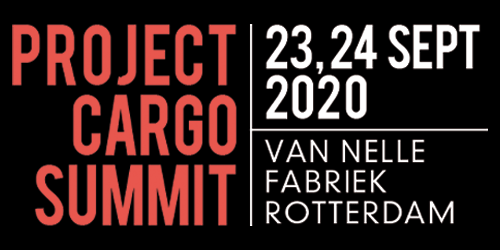Port of Rotterdam handles more breakbulk in 2019
The Port of Rotterdam handled 2.9% more conventional breakbulk in 2019 as a result of an increase in extra cargo packages, the port authority states. The growth is somewhat surprising as Europe’s leading breakbulk port, Antwerp, recorded a huge drop in volume citing trade tensions as the main reason.
The Rotterdam port authority did not specify what type of extra breakbulk cargo it attracted. It only mentioned that although the port recorded growth on an annual basis, there was a decline observable in the fourth quarter of 2019 “as a consequence of flagging German exports.”
Conventional breakbulk volume amounted to 6,548 thousand tonnes, up 187,000 tonnes in comparison with 2018 when the port handled 6,361 thousand tonnes of breakbulk.
The growth was driven by higher imports. The import of breakbulk was up 5.1% to 4.25 million tonnes. Exports were down 0.9% resulting in an export volume of 2.3 million tonnes.
Ro/ro transhipment increased slightly in 2019 despite the uncertainties and headwinds surrounding Brexit. “There were, however, significant fluctuations throughout the year, with throughput peaks as a result of stock build-up in the run-up to the proposed Brexit dates of 31 March and 31 October”, Port of Rotterdam states. The total ro/ro volume amounted to 24.25 million tonnes.
Antwerp
In comparison with its biggest rival, Antwerp, Rotterdam’s breakbulk industry performed well last year. Antwerp is and has been for a long time the main breakbulk port in Europe, but the port is struggling with declining volumes. In 2019, the Belgian port saw its conventional breakbulk volume take a massive nosedive dropping 18% year-on-year.
Port of Antwerp described the decline as “a consequence of the turbulence in the world”, pointing at the ongoing trade dispute between the US and China.
North Sea Port, the merged entity of the Dutch ports of Vlissingen and Terneuzen and the Belgian port of Ghent, reported a decline of 6.6% in its breakbulk volume but mentioned this decline was driven by the containerization of perishables like bananas. “Throughput of machinery was up”, the port said in a statement.
At the end of the third quarter, Rotterdam reported growth across all the traditional breakbulk segments including aluminium and steel. By the end of September, the port’s breakbulk volume was still up 4.4%, showing the drastic decline in the fourth quarter which dragged the annual growth down to 2.9%
Largest port
On paper, North Sea Port is now the largest breakbulk port in Europe, handling 11 million tonnes of conventional breakbulk. Due to its combination of smaller ports, North Sea Port’s range of breakbulk cargoes is varied, handling a mix of steel, forest products, perishables and project cargo.
In terms of sheer volume, Antwerp is now the second-largest breakbulk port with an annual through of 8.35 million tonnes and the vast majority of its volume consisting of steel. Rotterdam sits in third position with just over 6.5 million tonnes. Next to steel and aluminium, the port also handles various types of project cargo.
morenews
Project Cargo Summit 2024 programme takes shape
Excitement is building for the Project Cargo Summit 2024 in Bilbao, Spain! The dates are locked in (September 17th and 18th), the speaker list is filling up fast, and preparations are underway to make the “Project Cargo Summit 2024: Mega Cargo, Mega Solutions” an unforgettable event.
Project Cargo Summit 2024 registrations open
The time has come, we have opened registrations for this year’s edition of the Project Cargo Summit. As it was previously unveiled, the Port of Bilbao will be our host on September 17 and 18. There have been some changes since the announcement.
Project Cargo Summit goes to Bilbao
Following the successful outing in Bremen in 2023, ProMedia and its Project Cargo Summit team have turned their sights to a new adventure and have partnered with the Port of Bilbao. So for the 2024 edition of the Project Cargo Summit, project cargo, breakbulk and heavy lift industry specialists will gather in Bilbao for two… Read more ›
